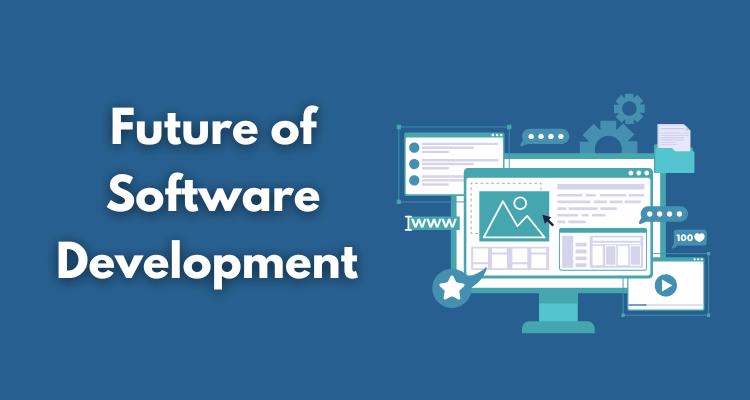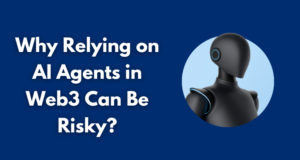Software development is transforming at an unprecedented pace, driven by technological advancements and evolving business needs. Companies are constantly adopting new strategies to enhance their digital presence.
One of the leading companies in this sector is Innowise.com, a trusted name in software development, providing top-tier solutions to businesses worldwide. Many organizations are now considering software development outsourcing to streamline their operations, access global talent, and optimize costs.
The Growing Impact of Artificial Intelligence

Artificial Intelligence (AI) has significantly influenced software development by automating tasks, enhancing decision-making processes, and improving user experience. AI-powered tools assist developers in writing optimized code, identifying potential bugs, and streamlining deployment.
Machine learning algorithms enhance applications’ ability to learn from user interactions, leading to more personalized digital solutions. Additionally, AI-driven analytics help businesses understand user behavior, refine their strategies, and improve efficiency.
The Rise of Low-Code and No-Code Development
Low-code and no-code platforms are revolutionizing the software development industry. These platforms allow businesses to create applications without extensive programming knowledge, reducing dependency on traditional developers.
Small and medium enterprises leverage such platforms to accelerate their digital transformation, quickly developing functional applications, or a no-code MVP with minimal resources.
If you’re considering a platform like Bubble, you might be interested in a Bubble promo code to get started. It is an AI app development platform that enables users to build powerful, scalable web and mobile applications without writing code.
Many organizations are also considering software development outsourcing solutions to further streamline their processes, access a broader talent pool, and optimize development costs. This trend is helping large enterprises prototype and launch new applications faster, significantly reducing development cycles and costs.
Cloud Computing and Software Scalability

Cloud computing has become an essential component of software development. Businesses now focus on building cloud-native applications that ensure scalability, flexibility, and security. Cloud-based solutions allow companies to store, manage, and access their data remotely, enhancing operational efficiency and collaboration.
The integration of cloud computing with DevOps practices has further optimized deployment cycles, reducing time-to-market for software products. Furthermore, serverless computing is gaining traction, allowing developers to focus on writing code without worrying about infrastructure management.
Cybersecurity in Software Development
With increasing cyber threats, cybersecurity has become a top priority for software developers. Organizations are implementing robust security measures such as encryption, multi-factor authentication, and real-time monitoring to protect sensitive information.
Secure software development practices ensure compliance with regulatory standards and build user trust in digital applications. Cybersecurity strategies now also include AI-powered threat detection, automated security testing, and zero-trust architecture, ensuring that applications remain resilient against evolving cyber threats.
Agile Development and DevOps Integration
The adoption of Agile methodologies and DevOps practices has revolutionized software development workflows. Agile promotes flexibility, iterative progress, and close collaboration among development teams, enabling faster project completion.
DevOps integration further bridges the gap between development and operations, ensuring continuous delivery and minimizing deployment risks. Companies that embrace DevOps benefit from automated testing, continuous monitoring, and quick rollbacks in case of issues, improving software reliability and performance.
Blockchain Technology in Software Development
Blockchain technology is increasingly being adopted in software development, providing decentralized and tamper-proof solutions. Industries such as finance, healthcare, and supply chain management leverage blockchain to enhance transparency, security, and trust.
Developers are exploring blockchain-based applications to facilitate secure transactions, digital identity verification, and smart contracts. Additionally, blockchain’s integration with AI and IoT is opening new possibilities for secure, automated, and data-driven applications.
The Role of Extended Reality in Software Development
Extended Reality (XR), which includes Virtual Reality (VR) and Augmented Reality (AR), is gaining traction in software development. Businesses in industries such as gaming, education, and real estate are leveraging XR to enhance user experiences.
Developers are focusing on creating immersive applications that offer interactive and realistic virtual environments, bridging the gap between the digital and physical worlds.
The Importance of Automation in Software Development
Automation has become an integral part of modern software development. Automated testing tools help developers identify bugs quickly, ensuring higher quality software with fewer errors. Continuous integration and continuous deployment (CI/CD) pipelines automate the software release process, allowing faster delivery and reducing manual intervention.
Additionally, robotic process automation (RPA) is being used to handle repetitive tasks, improving efficiency and accuracy in development workflows.
The Future of Software Development Careers
As technology evolves, so do the skills required for software developers. Companies are looking for professionals with expertise in AI, cloud computing, cybersecurity, and blockchain development. The demand for full-stack developers is also rising as businesses seek versatile professionals who can handle both front-end and back-end development.
Additionally, remote work has opened global opportunities for developers, allowing them to collaborate with teams from different parts of the world. Upskilling and continuous learning have become crucial for professionals to stay relevant in this ever-changing industry.
Conclusion
The software development industry continues to evolve with emerging technologies such as AI, cloud computing, cybersecurity advancements, blockchain integration, and extended reality. Businesses that embrace these innovations gain a competitive edge, improve efficiency, and deliver high-quality digital solutions.
As technology continues to advance, the future of software development promises groundbreaking innovations, shaping the digital landscape for years to come. Companies that stay ahead of these trends will be best positioned to thrive in the digital era.










